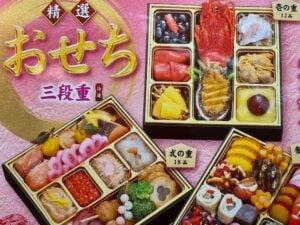
If you’ve done any amount of Japanese study, chances are you’ve come across a seemingly innocuous word: genki (元気). Most people learn it through the phrase “Ogenki desu ka?” (お元気ですか), which is usually taught as an approximation to the English “How are you?”. That’s a start, but I encourage Japanese learners to revisit this word periodically throughout their studies.
There is much more to “genki-ness” than meets the eye, and it’s a concept that doesn’t fit neatly into any existing ones in English. Surely Japanese students learn a better equivalent when studying English, right? Not really. Most of the time, students are told to use the word ‘active’ when describing someone as genki. I don’t blame anyone, though, because there really isn’t a one-size-fits-all translation.
To better understand, let’s take a look at the kanji used in this word. The first is 元, read as gen, which means ‘origin’ or ‘source’. The second is 気, or ki. This kanji can be traced back to the Chinese word 氣 ‘qi’, which you could probably figure out just by looking at the two characters. If you think it sounds similar to the ‘qi’ or ‘chi’ that you may have heard people trying to ‘center’ or ‘focus’ in martial arts movies, or perhaps even in an anime or manga, you’d be right! Although it started off as a Confucian concept, it has since become incorporated into many facets of life across Asia.
For example, the Chinese practice of qigong involves steady breathing and movement to calm the mind and body through balancing one’s qi. Qi is therefore sort of like one’s life force – something that connects our inner and outer worlds to each other. It’s a sort of intangible energy that, for lack of a better translation, is usually referred to as ‘spirit, mind, air, atmosphere’ in English, among many others. You might even argue that it can take on an almost spiritual usage.
With all this in mind, we can now put these two characters together. The resulting word 元気 means something along the lines of ‘origin of energy’, or ‘life force’. Intense, right?
“Genki-ness” is something you can have, something with which you can live your life, and even something you can give and receive. It can be balanced or unbalanced, flowing smoothly or not. Unlike pure qi, it can describe one’s physical as well as mental state.
I hope I’m impressing upon you the versatility in the concept of genki. For this reason, it should come as no surprise that genki’s presence can be found in many areas of our lives. From our attitude at work, to being something given to you by a friend, genki eludes definition in English. But, perhaps by exploring some usages and situational examples, we can gain a better understanding.
Embodying Your Genki



















